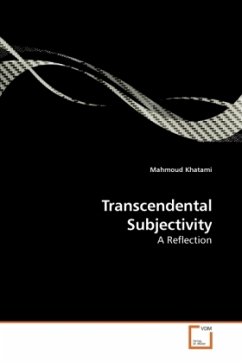The subject-object relationship has always been a significant problem in philosophical debates. However it was in modern philosophy that it became central for philosophers; since epistemology turned for them to be the most crucial part of philosophy. Launched in seventeenth century, this process found later its formulation in Kant s Copernican Revolution. Kant's approach to the problem of subject and object relation led him to presuppose a transcendental characteristic for human subjectivity. He seems however to consider it as a formal epistemic characteristic for human subjectivity. In this book, Mahmoud Khatami discusses Kantian conception of the transcendental and follows it up in post-Kantian traditions in order to deformalize it. Going beyond these traditions, Khatami implants the transcendental in the empirical and reflects on it as a latent characteristic of human subjectivity.
Bitte wählen Sie Ihr Anliegen aus.
Rechnungen
Retourenschein anfordern
Bestellstatus
Storno








